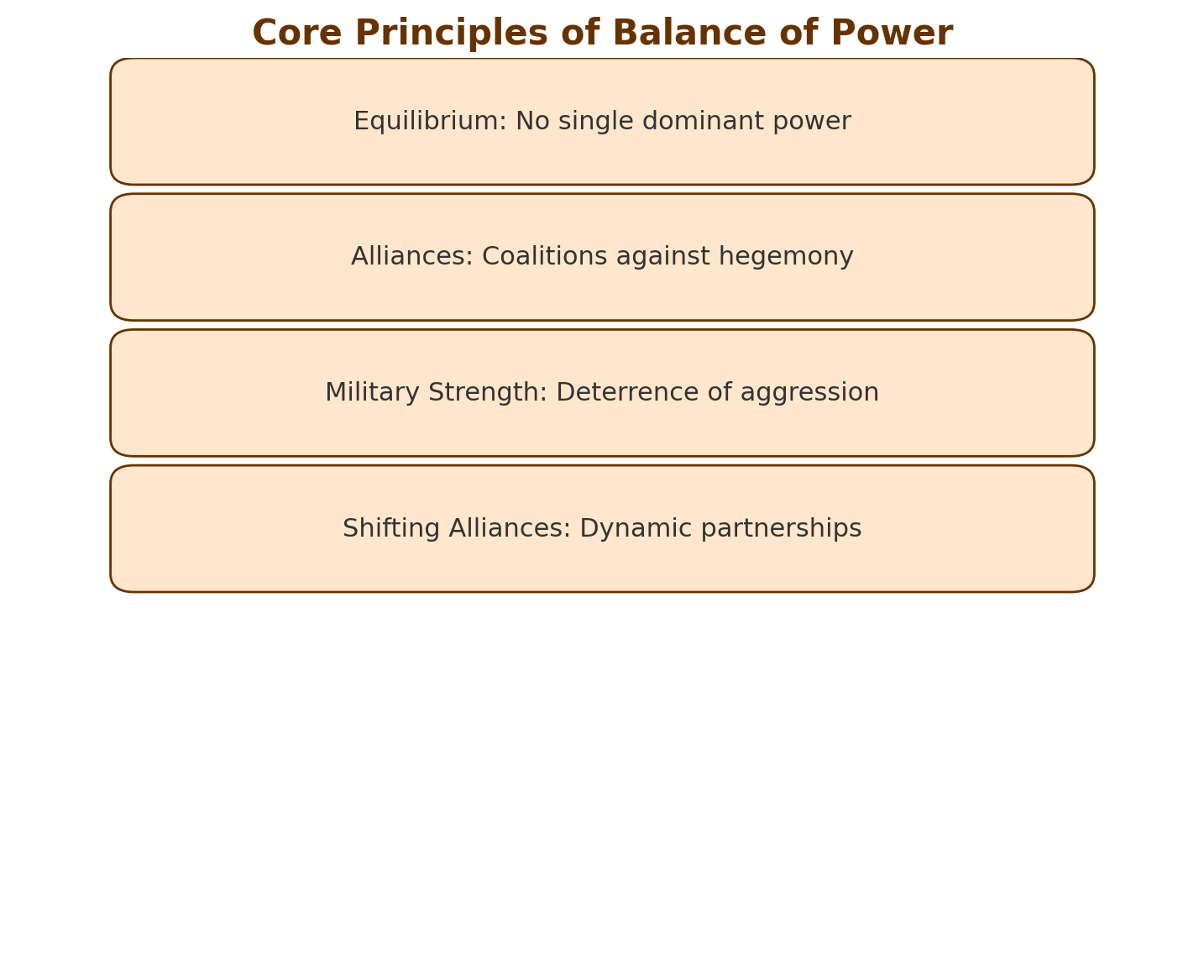
19 Jul Balance of Power in International Relations
Balance of Power in International Relations: An Essential Concept for UPSC CSE
The Balance of Power is a fundamental concept in International Relations (IR), critical for understanding state interactions, alliances, and the maintenance of international stability. This concept is highly relevant for UPSC Civil Services aspirants, especially in General Studies Paper 2, focusing on global geopolitics and India’s foreign policy.
Understanding the Balance of Power
The Balance of Power refers to a situation where power is distributed among multiple states to prevent any single state or alliance from becoming dominant. Its primary aim is to maintain international peace and prevent hegemony through equilibrium in power distribution.
Core Principles
- Equilibrium: No single state should dominate the international system.
- Alliances: States form coalitions to counterbalance stronger powers.
- Military Strength: Essential to deter aggression and maintain equilibrium.
- Shifting Alliances: Flexible partnerships ensure continuous balance adjustments.
Types of Balance of Power
- Bipolarity: Two major powers dominate (e.g., Cold War – US and USSR).
- Multipolarity: Several states of roughly equal strength (e.g., pre-World War I Europe).
- Unipolarity: A single dominant power (e.g., Post-Cold War, US dominance).
Balance of Power and India’s Foreign Policy
- Non-Alignment Movement (NAM): India’s historical approach to maintain strategic autonomy.
- Strategic Autonomy: Current policy focusing on independent decision-making to avoid power bloc entanglements.
- Quad and Indo-Pacific: Balancing against China’s growing influence through regional partnerships.
- India-China-Pakistan Dynamics: A clear demonstration of balance of power strategies in South Asia.
Significance of Balance of Power
- Prevents the rise of aggressive hegemons.
- Encourages diplomatic engagement and strategic caution.
- Promotes stability and peace through mutual deterrence.
Criticism of Balance of Power
- Can lead to arms races and heightened military tensions.
- Potentially unstable due to shifting alliances and miscalculations.
- May ignore ideological and domestic influences on state behavior.
Previous UPSC Questions Related to Balance of Power
- 2021: Evaluate India’s strategic autonomy in the contemporary global power structure.
- 2019: Discuss the role of balance of power in South Asian geopolitics.
Probable UPSC Questions
- Explain the concept of Balance of Power and its relevance to contemporary international politics.
- How has India’s foreign policy strategy reflected Balance of Power considerations in recent years?
- Critically analyze the effectiveness of the Balance of Power in maintaining global peace and stability.
Conclusion
The Balance of Power remains a cornerstone of international relations, essential for understanding geopolitical stability, alliances, and strategic decision-making. For UPSC aspirants, mastering this concept provides valuable insights into India’s diplomatic strategies and global peace mechanisms.
Keywords: Balance of Power, UPSC IR, International Relations theory, strategic autonomy, geopolitical stability




No Comments